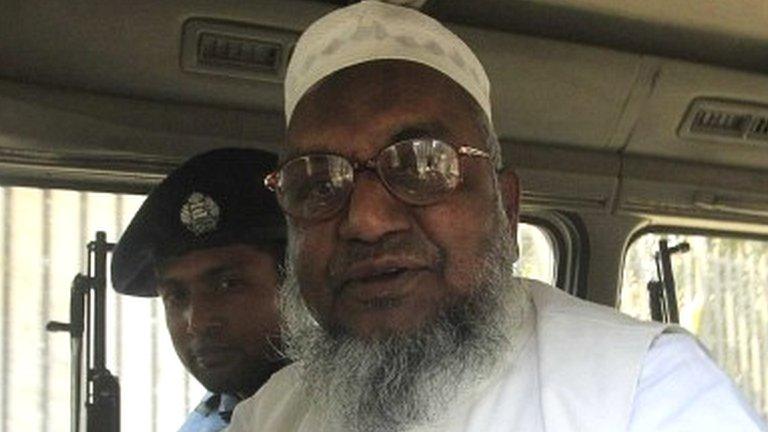Bangladesh upholds Islamist Kamaruzzaman death sentence
- Published
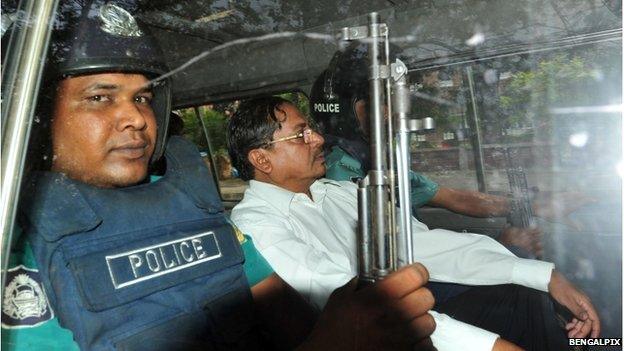
Mohammad Kamaruzzaman (C) was convicted in May 2013 of war atrocities
Bangladesh's Supreme Court has upheld the death sentence given to a leader in the country's largest Islamist party for atrocities committed during the country's war of independence.
Mohammad Kamaruzzaman of the Jamaat-e-Islami was found guilty of genocide and torture by a special war crimes tribunal in May last year.
The same tribunal sentenced party chief Motiur Rahman Nizami to die last week.
Another leader, Mir Quasem Ali, was also given the death penalty on Sunday.
Kamaruzzaman, 62, was found guilty of crimes which include a mass killing of at least 120 unarmed male farmers in the northern border town of Sohagpur.
He is due to be hanged.
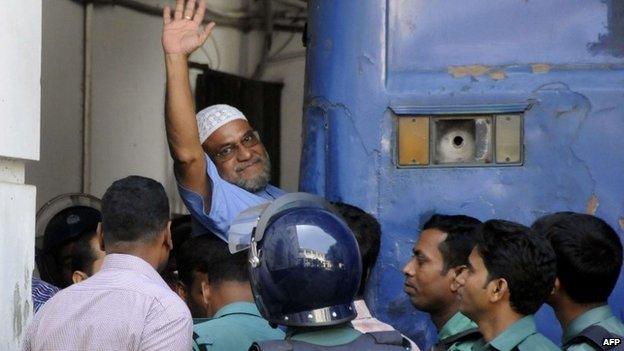
Media tycoon Mir Quasem Ali was sentenced to death on Sunday
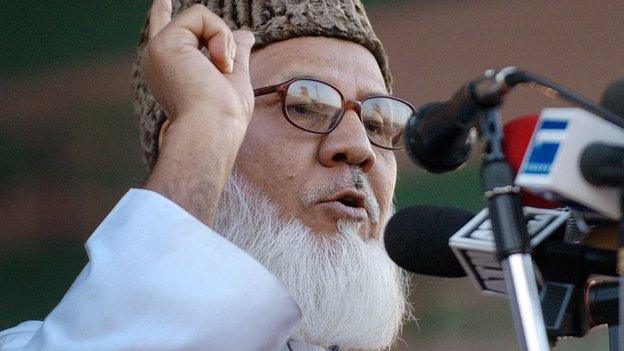
Motiur Rahman Nizami was given the death penalty last week
The convictions of Jamaat-e-Islami leaders have outraged supporters, who have been on a three-day strike, due to end on Monday, in protest at Nizami's sentencing last Wednesday.
There are different estimates for the number of people killed in the nine-month Bangladeshi war of secession from Pakistan in 1971.
Government figures suggest as many as three million people died, while some say that figure is too high and unverifiable.
Prime Minister Sheikh Hasina set up the war crimes tribunal in 2010 to look into abuses during the independence war.
The first person the tribunal executed was Jamaat-e-Islami senior leader Abdul Kader Mullah last December.
But earlier this year the Supreme Court overturned the death sentence passed against another senior JI leader, Delwar Hossain Sayeedi, commuting it to life imprisonment.
Critics of the controversial court say the government is using the tribunal to target political opponents. But the Awami League, which leads the current government, says it is necessary to help the country come to terms with its past.
Violent clashes across Bangladesh over the tribunal's verdicts in 2013 left about 100 people dead, BBC Bengali's Akbar Hossein reports.

Bangladesh independence war, 1971
Civil war erupts in Pakistan, pitting the West Pakistan army against East Pakistanis demanding autonomy and later independence
Fighting forces an estimated 10 million East Pakistani civilians to flee to India
In December, India invades East Pakistan in support of the East Pakistani people
Pakistani army surrenders at Dhaka and its army of more than 90,000 become Indian prisoners of war
East Pakistan becomes the independent country of Bangladesh on 16 December 1971
Exact number of people killed is unclear - Bangladesh says it is three million but independent researchers say it is up to 500,000 fatalities
- Published2 November 2014
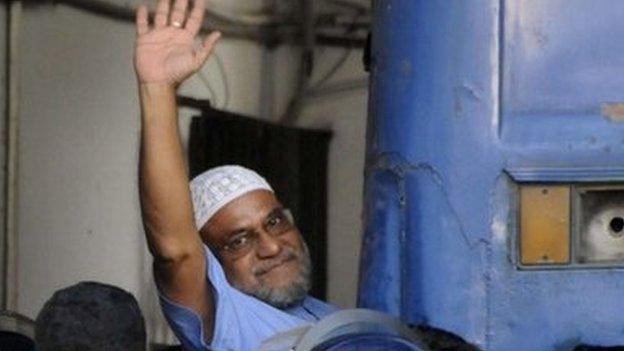
- Published29 October 2014
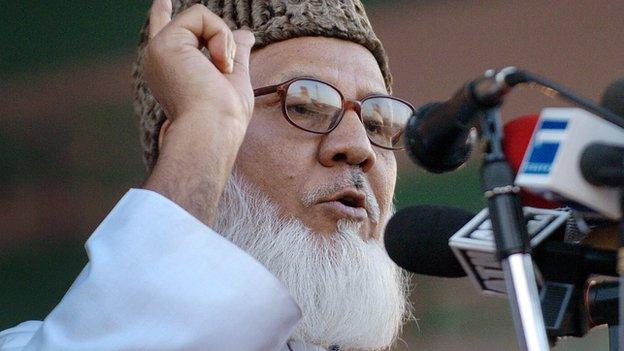
- Published21 January 2013
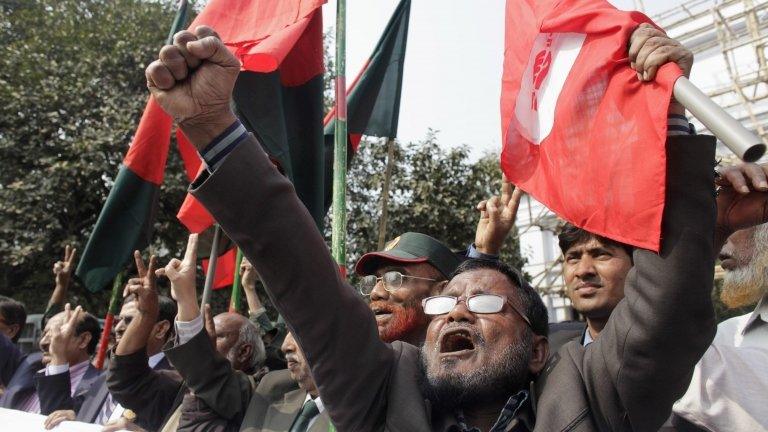
- Published12 December 2013
